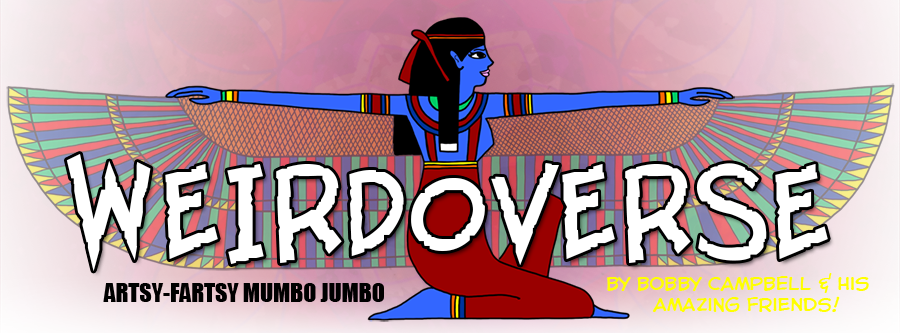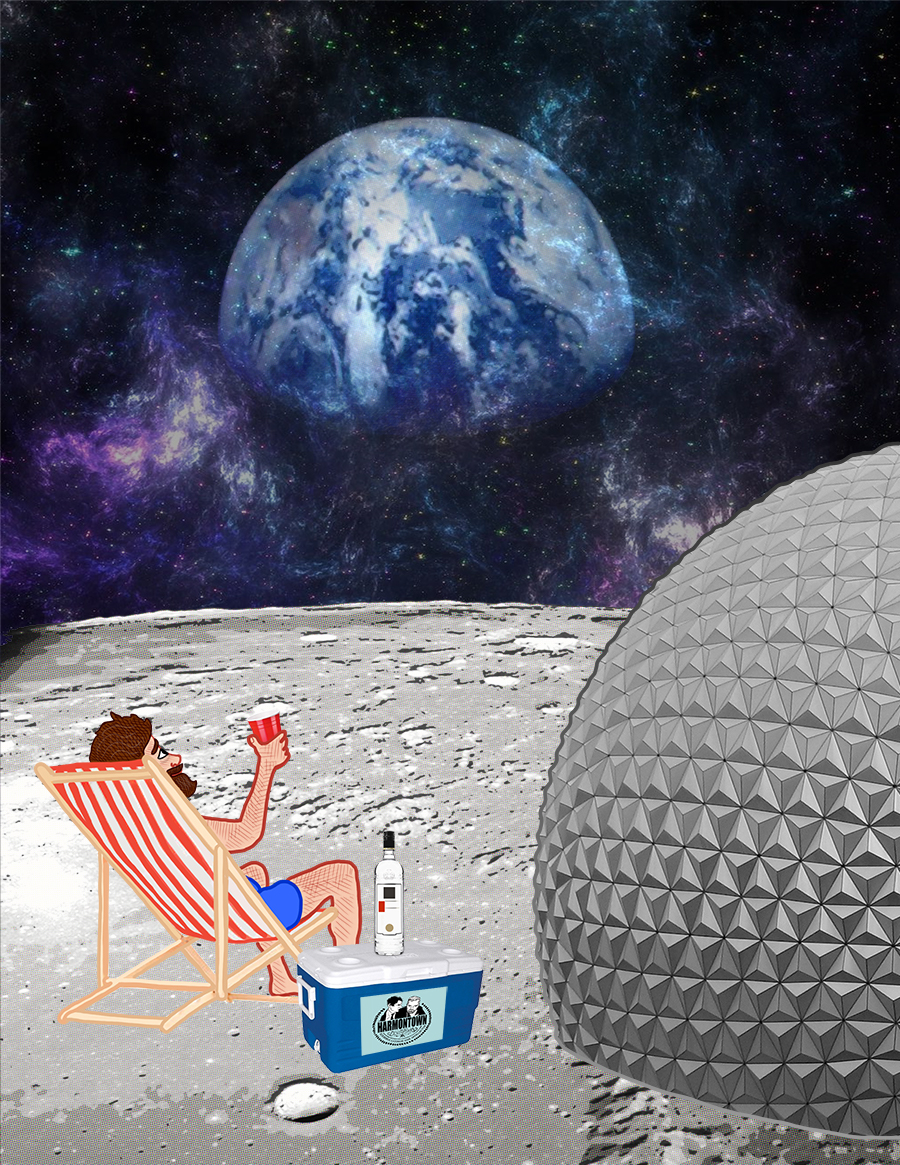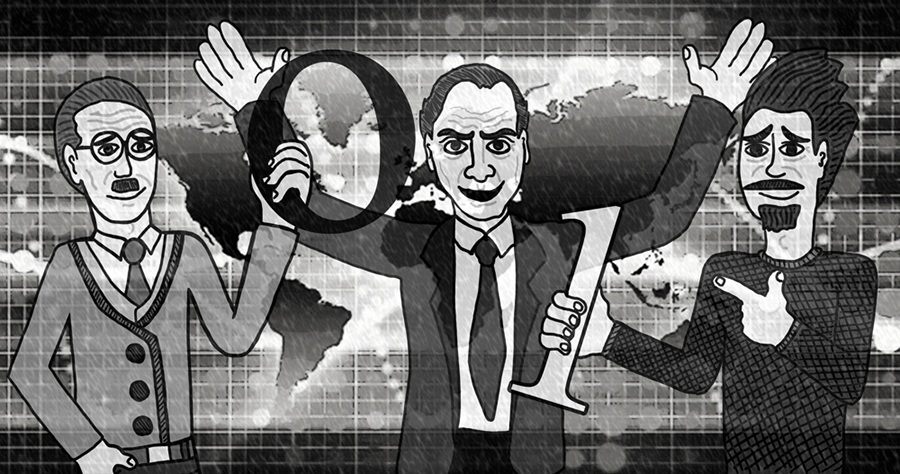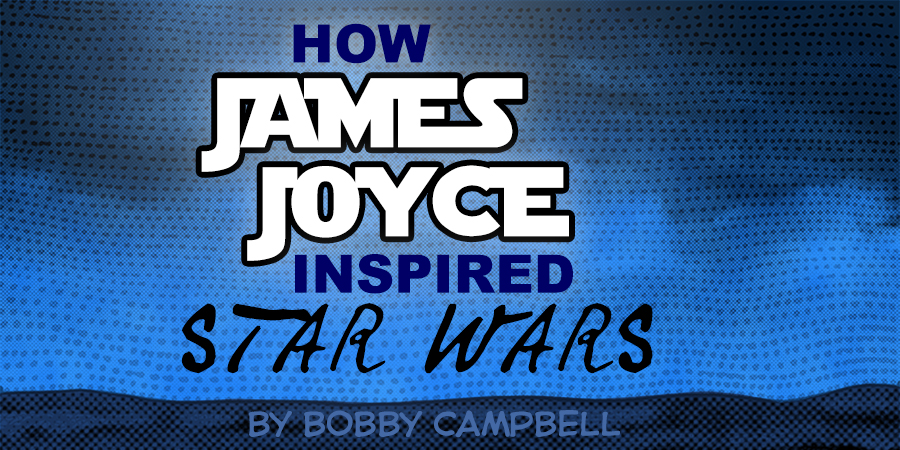
This is a fairly easy observation to make, but I’ve never seen anyone else connect these particular dots, and so here’s How James Joyce Inspired Star Wars.
It’s a well known piece of trivia that George Lucas borrowed from Joseph Campbell’s book The Hero With a Thousand Faces while composing the story of the original Star Wars movie. Luke follows the archetypal Hero’s Journey that Campbell outlined in his book. Though then another well known piece of trivia is that Joseph Campbell borrowed from James Joyce’s book Finnegans Wake while developing the structure of The Hero With a Thousand Faces. Campbell’s concept of the Hero’s Journey was inspired by Joyce’s monomyth. There is thus a direct line of influence from Joyce’s Finnegans Wake to Campbell’s Hero w/ a Thousand Faces to Lucas’ Star Wars.
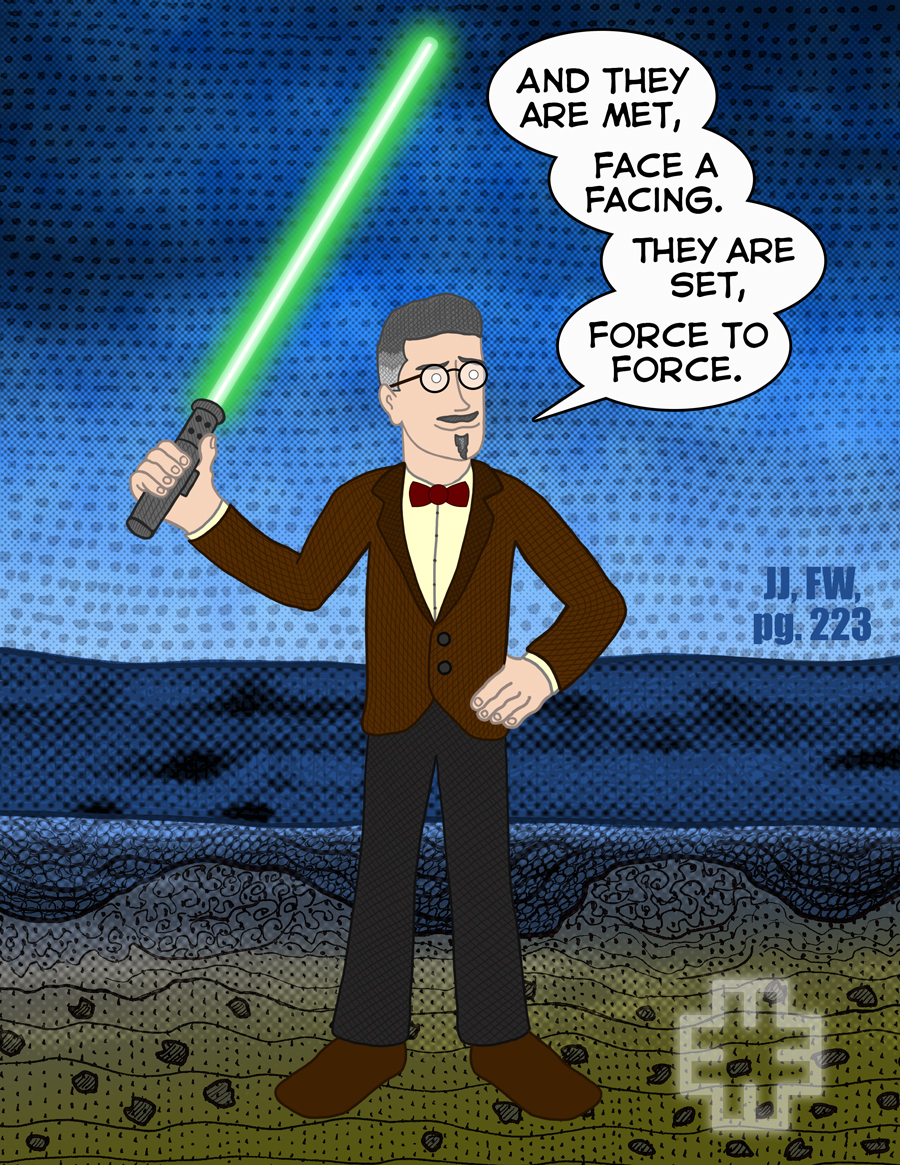
Not that there are all that many recognizably Joycean elements in Star Wars, but there does remain the general theme of common people contending against oppression while on a mythic journey of self discovery. What is it that the Finnegans are supposed to do once they awaken? Why they begin to rebel against the empire of course! In Finnegans Wake nothing ever means only one thing, but a particularly interesting interpretation, offered by Joyce himself, suggests the title is a warning to the ruling classes that the oppressed rise, eventually, in every historical cycle. That is, the Jedi always return.
The 7th installment of the Star Wars saga includes 2 potential high-profile references to the monomythic source material. The episode title The Force Awakens is a pretty simple jump from Finnegans Wake, and it’s an even smaller leap of logic to Finn, the stormtrooper turned rebel hero. Of course, these may be merely coincidental creative decisions, or worse yet, perhaps memetic synchronicity is an emergent, and especially nerdy, property of complex narrative systems :)))
The Rorschach test like aesthetic of Finnegans Wake’s holographic prose pretty much guarantees that you can find any number of Proto-Star-Warsian elements buried within, depending on how hard you are willing to look for them. For example: “right glad we never shall forget, thoh the dayses gone still they loves young dreams and old Luke with his kingly leer, so wellworth watching” (JJ, FW, Pg 398).
I couldn’t agree more!
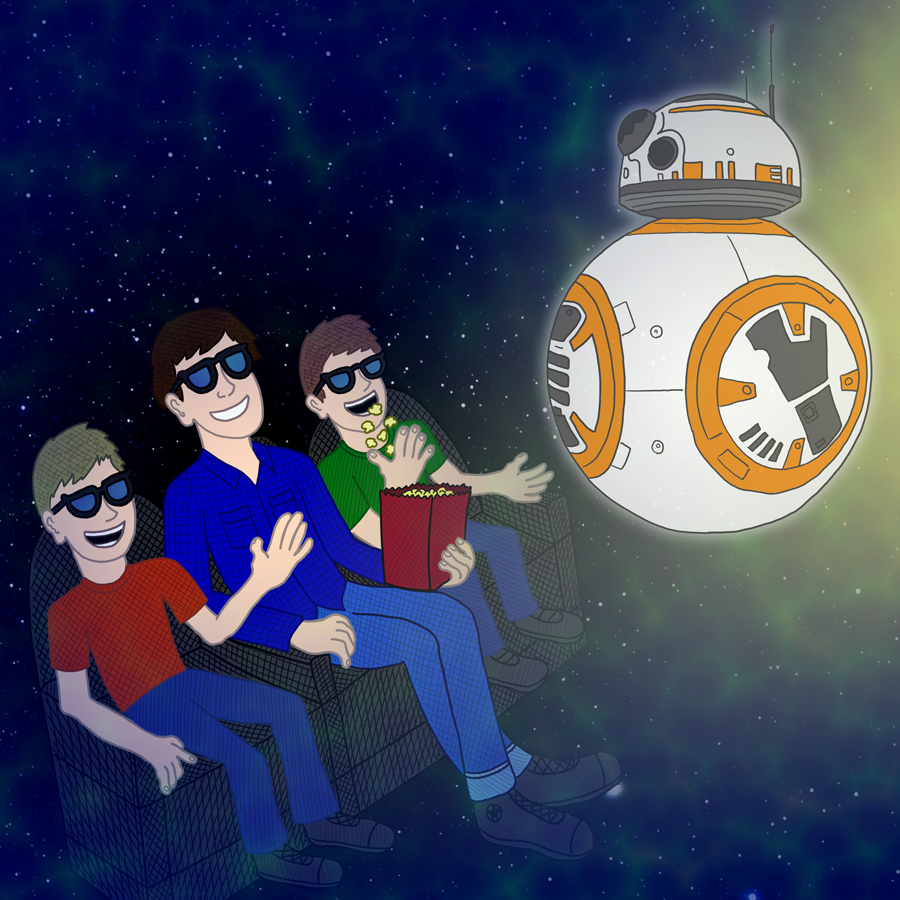
Also, This telephone game of inspiration reminds me of my other fav second gen iteration: Robert Anton Wilson & Robert Shea’s Illuminatus! trilogy influenced Grant Morrison’s Invisibles which influenced The Wachowski’s Matrix trilogy. Though then of course Finnegans Wake was a huge influence on the Illuminatus! trilogy to begin with, and so it goes for what Terence McKenna called the quintessential artwork of the 20th century.
If you’re interested in diving into Finnegans Wake, without the commitment of contending with that impossible sea of textual mish-moshing, I heartily recommend WAYWORDS AND MEANSIGNS
A free unabridged musical version of James Joyce’s Finnegans Wake created by a collaborative collective of intrepid Joyceans. Surf’s up!
